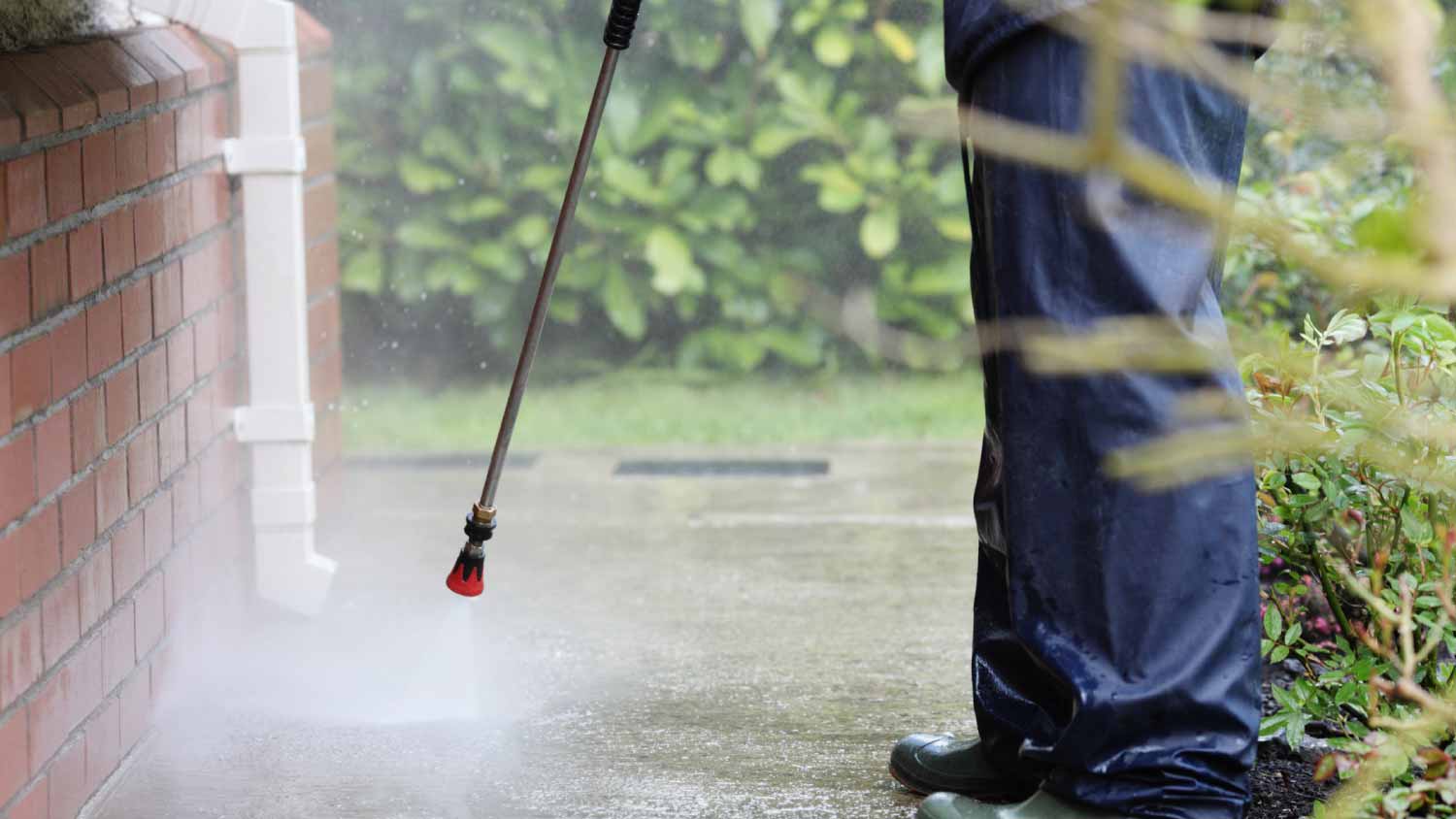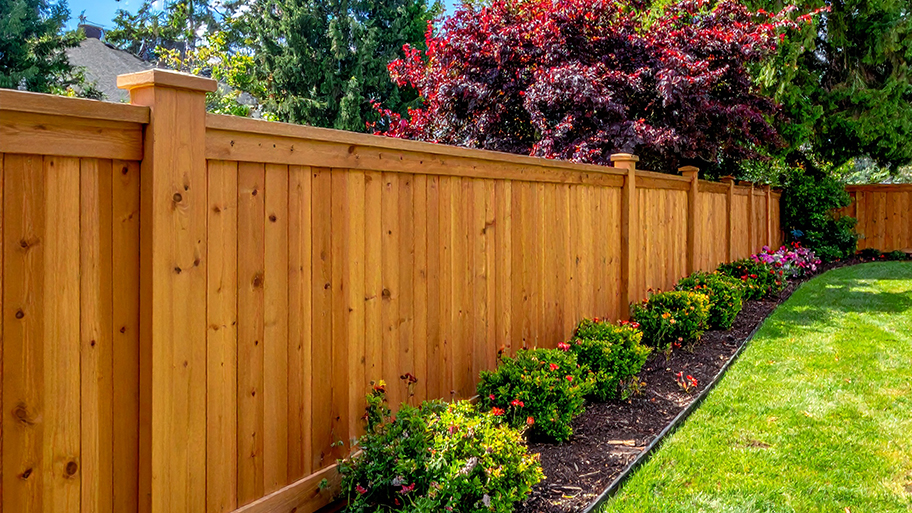
The cost to pressure wash a deck depends on its size, condition, material, and whether you DIY the job. Help set your budget with this cost guide.
A quick and not-so-dirty explanation


Jet washing is the general term for cleaning surfaces with a high-pressure stream of water, and it includes pressure washing.
Jet washing and power washing differ by their water temperature (power washing uses heated water).
Both are effective for tough stains and grime but are too harsh for some surfaces.
When scrubbing hard surfaces just won’t remove the dirt and grime, jet washing is a highly effective alternative. Jet washing involves a motorized pump that aims a stream of high-pressure water at surfaces to clean them. The term is often used interchangeably with power washing, but there’s a key difference between jet washing and power washing. Keep reading to learn what jet washing is and why it might be the right move for your cleaning project.
Jet washers are motorized pumps that spray high-pressure streams of water at surfaces. The intensity of the water is often enough for home cleaning jobs, but you can add cleaning products to increase the cleaning power of a jet washer.
“Jet washing” includes any pressurized washer used to clean, so a pressure washer is a type of jet washer. However, in some areas, people use “jet washing” to refer to a pressure washer that’s a bit stronger than the average machine and has more pressure settings.

Should you use a jet washer for your cleaning project? Let’s take a look at some of the pros and cons of this powerful cleaning method.
| Pros | Cons |
|---|---|
| It’s effective | Easy to damage surfaces |
| It’s fast | Uses a lot of water |
| It’s versatile | Can be dangerous |
Ever wondered what the benefits of jet washing are? Here are a few reasons that it’s a top-tier cleaning method.
It’s effective: Jet washing gets the job done, even with cold or room-temperature water, because the intensity of the stream easily takes away stubborn dirt and grime.
It’s quick: There’s no arguing that jet washing is faster and easier than scrubbing something by hand. Especially if you’ve got a machine with a high GPM—gallons per minute—rating, you can cover larger areas more quickly.
It’s versatile: While jet washing isn’t ideal for all surfaces, you can use it to clean a variety of hard surfaces, including concrete, vinyl siding, and metal. For softer surfaces like wood and aluminum, check the pounds per square inch (psi) rating and make sure it’s on the lower side to avoid damage.
"Never spray anything head-on because this can cause damage. Spraying at an angle allows for better control and helps you reach more surfaces without having to repeat the same movements over and over again."
— John Gabrielli, Owner of Air Temp Solutions, New Castle, Delaware
Jet washing isn’t for everyone or for every job. Here are some drawbacks of jet washing.
It could damage some surfaces: If you’re new to jet washing as a DIYer, don’t dive in without some education and practice. If you don’t use the jet or pressure washer correctly, you’ll risk damaging the surface with the intense water spray.
It uses a lot of water: While jet washing does get cleaning jobs done faster, it still uses quite a bit of water. Always observe any water or drought restrictions in your area before jet washing.
Personal safety is at risk: Take care when using a jet or pressure washer for the first time and every time. Keep any jet nozzle pointed away from humans and animals to avoid injury. A “fight” with a garden hose might be fun, but a fight with a jet washer can result in serious injuries.
The term jet washing is often used the same way as power washing. However, there’s a difference between general jet washing and the more specific power washing in regard to water temperature.
Power washing relies on heated high-pressure water, making it the better cleaning method for harder-to-remove stains like grease and oil. Jet washing or pressure washing uses cold or room-temperature water. It’s a fine option for removing lighter layers of dirt or for use on more sensitive surfaces that won’t take kindly to hot blasts of water.
When in doubt about which method is right for your cleaning task, keep yourself and your property safe by calling a pressure washing pro near you to do the work.
From average costs to expert advice, get all the answers you need to get your job done.

The cost to pressure wash a deck depends on its size, condition, material, and whether you DIY the job. Help set your budget with this cost guide.

Pressure washers can help you keep your home looking great. Use this guide to learn how much it costs to rent a pressure washer based on factors like type and time.

Pressure washing your fence can restore its appearance and keep your home looking great. Learn how much it costs based on factors like square footage and material.

Choose the right power washer to tackle your projects with ease. Learn about gas versus electric power washers, their pros, cons, and costs.

Read this article and learn about the 17 items you should never pressure wash to avoid damage and costly mistakes.

Pressure washer troubleshooting can save you a trip to a pro and a service fee. We’ve rounded up common pressure washer issues to help you fix your washer.